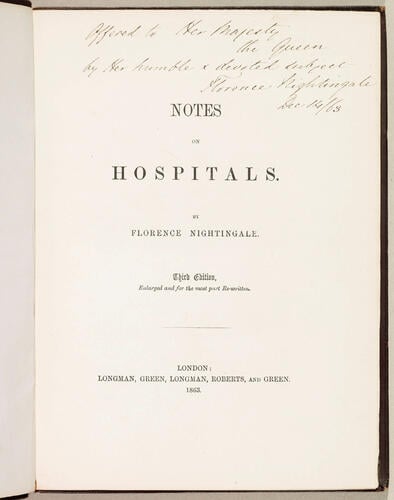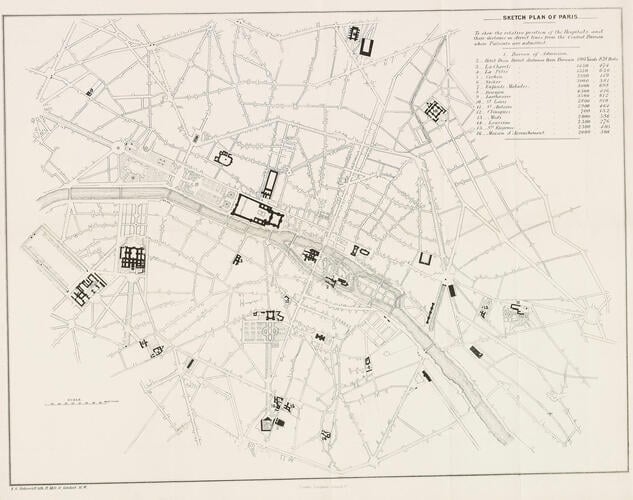-
1 of 253523 objects
Notes on hospitals 1863
264 x 200 x 28 mm (book measurement (conservation)) | RCIN 1075237
-
Florence Nightingale, keen to increase the range of employment open to ladies, spent her early adulthood visiting hospitals in Europe, studying their methods of training nurses, before she was herself trained at Kaiserswerth in 1851. She became the Superintendent of a women’s hospital in London in 1853. The following year, in the early months of the Crimean War, W.H. Russell’s reports in The Times of the insanitary conditions in the British military hospitals at Scutari, near Istanbul, shocked Britain. Sidney Herbert, Secretary at War, asked Miss Nightingale, whose work he knew well, to take nurses out there and to superintend improvements. Her quiet determination in tackling the problems in the face of an entrenched military establishment, and her understanding of the spiritual as well as the physical needs of the wounded soldiers and their families, won her great acclaim and an international reputation.
On her return home in 1856 she visited Balmoral to give first-hand reports of her achievements to Queen Victoria and Prince Albert, who took a keen interest in such matters. In the letter accompanying this presentation copy of one of her books, she refers to the part played by ‘our beloved Prince’ in the design of a hospital in Lisbon. Although her health had been much impaired by her service abroad, she used her experience in advising on the training of nurses, hospital building and sanitation, writing copiously. In 1907 she was the first woman to receive the Order of Merit.Provenance
Presented to Queen Victoria by Florence Nightingale, 14 December 1863. Given to the Royal Library in Februrary 1898.
-
Creator(s)
Acquirer(s)
-
Measurements
264 x 200 x 28 mm (book measurement (conservation))
26.5 cm (Height) x 2 cm (Depth) (book measurement (conservation))
Other number(s)
RL acq. 1892-1919: Books added to Royal Library, Windsor Castle 1 January 1892 to 18 December 1919 – RL acq. 1892-1919 4 Feb. 1898Alternative title(s)
Notes on hospitals / by Florence Nightingale.

